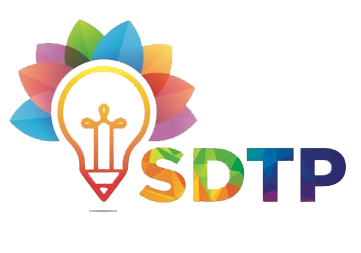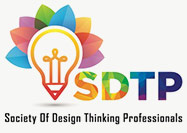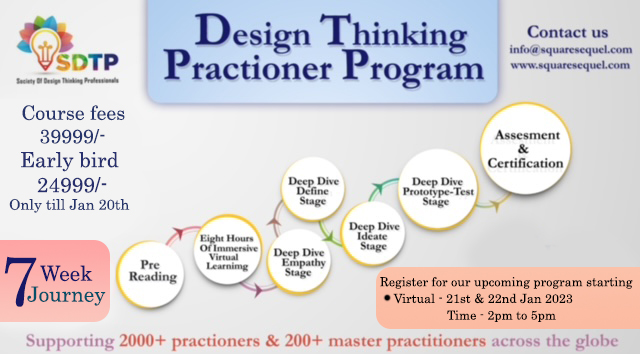In the corporate ladder, credibility is a vital currency. It’s the key that unlocks doors to meaningful connections, opportunities, and success. Credibility is defined as the quality of being trusted and believed in, and it is crucial in business or the workplace as it reflects your values and abilities.
It also increases your influence and gives you access to more extensive opportunities. Imagine brokering a deal or asking for a promotion without being credible. Success would be near impossible!
What is Credibility? [A Life Long Learning Journey]

Credibility starts with being a lifelong learner. It’s about continuously expanding your knowledge and skills, staying up to date with industry trends, and being open to new ideas. Are you a lifelong learner? If not, it’s time to embrace the path of continuous learning to boost your credibility.
If we go by the definition, credibility is the foundation upon which trust is built. When you consistently demonstrate your competence, reliability, and authenticity, you earn the trust of your colleagues and superiors.
“87% of successful professionals attribute a significant part of their credibility to their commitment to continuous learning.” – Harvard Business Review
By staying curious, investing in professional development, and actively seeking new knowledge, you can bolster your expertise and reinforce your credibility. This proactive approach to learning not only enhances your confidence but also positions you as a valuable resource for your clients and colleagues.
Congruency in words and actions equals credibility. Credible leaders are those who walk the talk. Trust grows among team members, subordinates, and the leader when the latter is prepared to take responsibility for their actions. Furthermore, research indicates that a culture of high trust enhances productivity and performance.
Types of Credibility

There are various types of credibility that contribute to your professional reputation.
- Initial credibility: It is one’s designation, skills, and job description that serve as the introductory narrative defining who we are within the organization.
- Acquired credibility: It is established through gaining knowledge and expertise in your specific field, solidifying your proven capabilities, trustworthiness, and positive contributions within the workplace.
- Trustworthiness credibility: It is built by consistently demonstrating honesty, integrity, and reliability, being conscious of the words you are saying, and maintaining congruency in your words and actions.
- Likability credibility: It is about being approachable and building rapport with others, enhancing your ability to connect and collaborate effectively.
By understanding and nurturing these types of credibility, you can strengthen your overall influence and trust in the workplace.
How to take the First Step?
– Stay curious and open-minded.
– Invest in professional development.
– Read industry-related books and articles.
– Attend workshops and seminars.
– Engage in online courses and webinars.
Sharing What You Know: Building Trust
Sharing your knowledge and expertise is a powerful way to build credibility. When you’re willing to help others by sharing what you know, you establish yourself as a go-to resource in your workplace. It’s not just about acquiring knowledge; it’s about sharing it generously.
For example, a study published in the Journal of Applied Psychology found that employees who actively shared their knowledge and mentored colleagues were perceived as more credible and were more likely to be promoted.
By mentoring colleagues, offering guidance, and sharing insights during meetings, you not only establish yourself as a go-to resource but also strengthen your relationships. Your written and verbal communication skills play a significant role here, as they enable you to convey your knowledge in a way that resonates with others, reinforcing your credibility.
How to do it:
– Mentor colleagues and offer guidance.
– Share insights during team meetings.
– Write articles or blog posts on relevant topics.
– Give presentations or workshops.
– Participate in knowledge-sharing platforms.
Volunteering for Activities at Work: Be Visible!
Volunteering for additional activities at work is a surefire way to enhance your visibility and credibility. Whether it’s taking on extra responsibilities, leading projects, or participating in cross-functional teams, being visible within your organization can solidify your reputation.
Being visible in your organization not only reinforces your credibility but also opens doors to more substantial opportunities. By actively seeking ways to contribute beyond your job description, you demonstrate your commitment and initiative.
How to do it:
– Express your interest in taking on more tasks.
– Offer to lead or contribute to high-impact projects.
– Participate in committees or task forces.
– Volunteer for workplace initiatives.
– Collaborate across departments.
Going Beyond Your Job Description: Embrace Your Uniqueness!
You are not defined solely by your job description. Embrace your unique skills, experiences, and perspectives. Showcase your talents beyond your official role. Acknowledge and leverage your individuality to enhance self-assurance and connect with others on a deeper level.
By proactively taking on additional responsibilities, participating in professional development, and fostering strong relationships with colleagues, you showcase your versatility.
For example, a study by the American found that professionals who actively sought to use their unique strengths at work were more likely to be perceived as credible and were more satisfied in their roles. In fact,
“82% of professionals who embraced their uniqueness reported higher levels of credibility within their organizations.”
– American Psychological Association Research
Your willingness to embrace a growth mindset and contribute innovative solutions strengthens your credibility. Recognizing that you are more than your job title and actively leveraging your unique talents allows you to build deeper connections and demonstrate your worth.
How to do it:
– Showcase your unique strengths and skills.
– Take on additional responsibilities and projects.
– Seek professional development opportunities.
– Foster strong relationships with colleagues.
– Be adaptable and willing to learn.
– Volunteer for leadership roles.
– Promote innovative solutions and contribute to problem-solving.
– Actively engage in networking and industry events.
– Share your knowledge and mentor others.
– Embrace a growth mindset.
Your Social Media Handle & Content: A Reflection of Your Credibility
In the digital age, your online presence matters. Your social media handles and the content you share on them are a reflection of your credibility. Ensure that your digital footprint aligns with your professional image and values.
Given your expertise in your field, curating informative and engaging content on your social media platforms can be a valuable asset. By sharing industry-related content, engaging in meaningful conversations, and avoiding unprofessional posts, you reinforce your credibility as a content writer and marketer. Your online presence serves as a reflection of your knowledge and values, contributing to the overall perception of your credibility.
How to do it:
– Maintain and keep updating your professional social media profiles.
– Share industry-related content.
– Engage in meaningful conversations.
– Avoid controversial or unprofessional posts.
– Use social media to showcase your expertise.
Building Your Personal Brand: A Credibility Booster
Your personal brand is your unique identity in the professional world. It’s how others perceive you, and it plays a significant role in establishing your credibility. Cultivate a strong personal brand that aligns with your values and professional goals.
By staying authentic and true to your values, you not only build a strong personal brand but also reinforce your credibility in the industry. Your personal brand becomes synonymous with your expertise, bolstering your influence and trustworthiness.
How to do it:
– Define your personal brand identity.
– Consistently communicate your brand message.
– Showcase your expertise and passion.
– Stay authentic and true to your values.
– Network with like-minded professionals.
Discipline: The Backbone of Credibility
Discipline is the backbone of credibility. It’s about consistency, reliability, and a strong work ethic. When you consistently deliver on your commitments, you build trust, which is a cornerstone of credibility.
For you being an expert in your field, discipline is paramount. According to recent research conducted by The Society for Human Resource Management (SHRM) highlights the importance of discipline in the workplace. Reliable and disciplined employees are not only seen as more credible but also as more valuable to their organizations. In fact, 68% of professionals agree that discipline is a crucial factor in building credibility.
In a simple sense, It ensures that you consistently deliver high-quality work on time. This level of reliability not only reinforces your credibility but also builds trust with clients and colleagues. Discipline is the backbone that supports your work and strengthens your reputation as a professional.
How to do it:
– Set clear goals and priorities.
– Manage your time effectively.
– Meet deadlines and honor your promises.
– Be organized and detail-oriented.
– Hold yourself to high standards.
Congruency in What You Say and Do: Trustworthiness!
Credibility is closely tied to trustworthiness. When there is congruency in what you say and what you do, you become a reliable and trustworthy individual. Your tone, word choice, and non-verbal cues should all reflect your commitment to integrity.
This consistency in your behavior reinforces your trustworthiness and, by extension, your credibility. When your audience sees that your actions match your words, they’re more likely to trust and rely on your content.
How to do it:
– Be transparent and honest in your communication.
– Follow through on your commitments.
– Admit when you make mistakes and take responsibility.
– Practice active listening and empathy.
– Maintain consistency in your behavior.
Cultivating credibility in the workplace is a lifelong journey, and it’s about understanding your strengths, investing in self-improvement, and actively working on your confidence. Credibility leads to trust, and trust is the currency that fuels meaningful connections and success in your professional life.
In the end, as Maya Angelou wisely said, “You may not control all the events that happen to you, but you can decide not to be reduced by them.” Building credibility is the key to staying within the challenges of the workplace.
https://www.interaction-design.org/literature/topics/credibility
https://medium.com/swlh/how-to-build-credibility-at-work-d48892ec8512
https://www.forbes.com/sites/ashiraprossack1/2018/04/23/3-ways-to-build-credibility-at-work/
https://www.techtello.com/how-to-build-credibility-at-work/
https://hbr.org/1988/11/in-praise-of-followers
https://vanhooser.com/walk-the-talk/
Written By: Jimmy Jain
Edited By: Afreen Fatima
Society of Design Thinking Professionals









